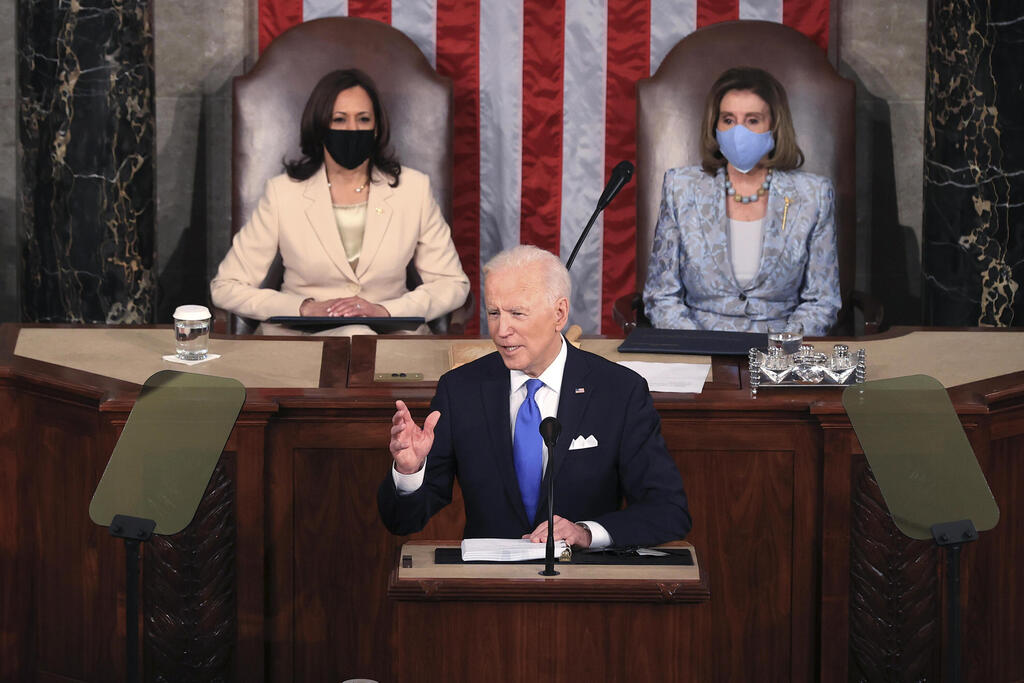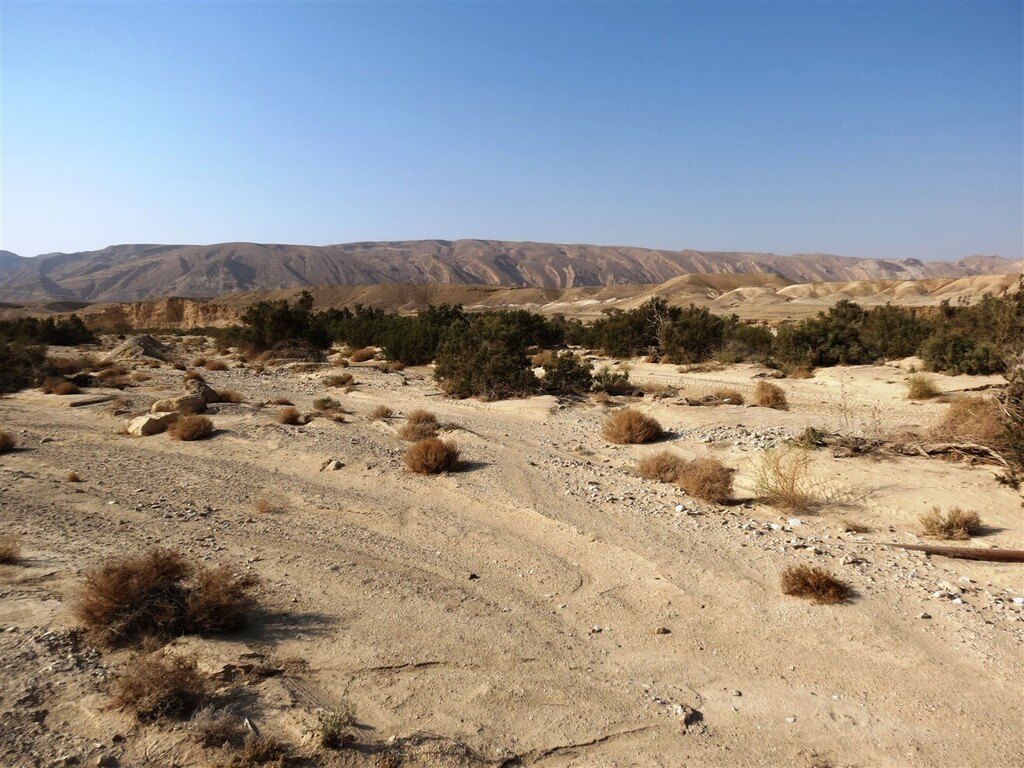Getting your Trinity Audio player ready...
On October 23, 2020, then-U.S. president Donald Trump and then-presidential candidate Joe Biden stood on stage and talked for 15 minutes each about their policies regarding the climate crisis as part of a prime-time debate.
Meanwhile, never once were Knesset candidates asked on prime time what their position was on climate change over the country's four election campaigns in the last two and a half years.
5 View gallery


Demonstrators hold up a sign saying 'our future, our responsibility' at a climate rally, in Tel Aviv, October 10, 2019
(Photo: Moti Kimchi)
The new government brings great hope as it pertains to Israel's response to the climate crisis. There is a group of ministers and MKs who are committed to the issue and are well acquainted with the solutions. They have the impetus to lead far-reaching changes, as is required in this time of climate emergency, and as is happening around the world.
However, unlike the great interest the climate crisis generates the world over — as attested by the rise of the Green Party in Germany, which is set to lead the country in the post-Angela Merkel era, or Joe Biden's groundbreaking climate policy — the issue takes a back seat in Israel.
The environmental movement in Israel is highly skilled and very committed and is joined by youth and young adults who demand their leaders preserve their future, but most of the Israeli public does not find the climate crisis to be a burning issue.
In his debut speech before the U.S. Congress, incoming president Joe Biden vowed to reduce greenhouse emissions and kickstart the economy by turning the United States into a world leader in green energy.
5 View gallery


U.S. President Joe Biden giving his debut speech before Congress, April 24, 2021
(Photo: AP)
Here in Israel, Prime Minister Naftali Bennett chose, and not by chance, to talk about another critical civic issue instead — the construction of two new hospitals in the countryside.
Had he even mentioned a national plan to tackle greenhouse emissions, some bewildered commentator could have speculated that the Knesset gardener got a hold of the incoming prime minister's notes when no one was looking and planted his own takes in, because what is it to us?
TRAPPED IN A MISCONCEPTION
This problem is deeply rooted in the perception that we, the Israelis, are simply watching idly by from the stands at this state of affairs. The common argument that Israel is only responsible for 0.2% of global greenhouse emissions reduces the country's climate response to nothing more than symbolic gestures since most believe we have no influence on the situation anyway.
This perception that the climate crisis is none of our business and "that the Europeans will take care of the climate" is not only an irresponsible excuse to not act, but it also goes against Israeli interests.
5 View gallery


A view of the Judean Desert in Southern Israel, March 23, 2021
(Photo: The Society for the Protection of Nature in Israel)
The success of the global response to climate change should be our top priority since the Middle East region is particularly susceptible to its adverse effects.
Without a proper response to the climate crisis, many areas across the Middle East will become uninhabitable within a few decades, which will increase political instability, and turn millions of people into climate refugees. Security experts see this as one of the biggest threats to Israel's national security.
The Israeli Meteorological Service published a report in 2019 saying that if we won't put in place dramatic measures to tackle the climate crisis head-on, summer in Israel will only become longer while winter will shorten later this century. Or in other words, Israel is becoming a desert.
The Israeli climate crisis
We must not think that the current framework will allow us to promote far-reaching policies that require public support and mobilization of all stripes of the political spectrum.
In order for the government to materialize its ambitious plans, we must change the framing of the climate crisis from a nebulous, global threat that "belongs to someone, somewhere else" to an Israeli climate emergency.
But how can the climate, which encompasses the entire planet, become an Israeli issue?
A good starting point would be to demonstrate how the climate crisis is affecting our lives here and now.
Israel goes through several extreme weather events every year which are only getting more intense and more frequent, taking a toll on climate victims.
Today, we fail to draw the link to the climate crisis, but these extreme weather events are in fact the norm in this new climate.
Take for example the winter floods in Nahariya's Ga'aton River that took several victims or the summer fires in the Jerusalem mountains that led to the evacuation of countless homes.
Similar events have occurred in the past, but the climate crisis is only making them more intense and more frequent. This message must be conveyed regularly — this is what an Israeli climate crisis looks like!
DRAWING A CLEAR PICTURE OF THE FUTURE
The climate crisis is happening here and now, but we are only at the beginning. Climate scientists have accurate forecasts for the local level. We know how the climate crisis will affect every city in Israel.
For example, a mid-century Tel Aviv summer will be characterized by heat waves that could last up to twenty days in a row. Recent studies showed that the heat load could be so severe on certain days that the life of people staying outside air-conditioned buildings could be at risk.
These scenarios can still be prevented, but we must take dramatic steps within the next few years, and the window of opportunity is closing.
It is paramount we find ways to demonstrate the potential future risks so that decision-makers and the general public will get to know the climate waiting for every community in Israel if we do not act swiftly and decisively.
The Environmental Protection Ministry released a report in April about Israel's preparedness for the changing climate. The report paints a clear picture of a "warmer, drier and more extreme" Israeli future.
The report predicts more frequent extreme weather events and rising sea levels that will lead to flooding of coastal cities. According to the report, this will harm Israel in all aspects from health and economy to national security.
In contrast, tackling the climate crisis holds many opportunities. The transition to renewable energies will create thousands of new jobs and Israel could be leading the world in the development of hydroelectric and other energy technologies. This should be clear to all members of the new government.
In 2021, the climate crisis is one of the major issues that should be addressed by the leadership of any country that cares about its citizens.
How we deal with the climate crisis will determine how and whether we will keep living here in Israel. We must break free from the perception that we are just watching idly by from the peanut gallery. It is time for an Israeli prime minister to feel comfortable talking about climate policy.



